Hi “Am I OK” readers,
This week’s post is a special one — not only do I get to interview a dear friend of mine (who happens to have a fascinating job), but it’s also my first time experimenting with multiple mediums here in Substack. You can check out the transcript of my conversation with Matt (below) or watch the unabridged, unedited version of our interview in video form above (for the full authentic experience, I highly recommend!)
Another note: I’m heading off to my honeymoon this week (spending 10 days on safari and gorilla-trekking in Rwanda!), so I will be focusing on spending some quality time with my husband, and I won’t be sending this newsletter out for the next couple of weeks. I’ll be back in your inboxes when I return. :)
A little background before you dive into my interview with Matt Roser, who is a manager of Unscripted and Alternative Programming for Walt Disney Television, and who works on shows that appear on both ABC and Hulu: Matt is a friend I met through my husband, Nick — they are both alumni of Ithaca College in upstate New York, and they both work in television here in Los Angeles. Matt’s job is especially interesting to me because I am an (unapologetic) reality TV junkie, and I want to know what it’s really like working in unscripted (the good, the bad, and the ugly!). Matt is working on one of my favorite shows right now, The Secret Lives of Mormon Wives, which is premiering its second season on May 15.
Emma: Matt, before we get started, can you introduce yourself and tell everyone a little about what you do?
Matt: Yeah, of course. My name is Matthew Roser, and I am the manager of unscripted and alternative programming at Walt Disney Television. So that primarily focuses on ABC and Hulu originals in the unscripted reality space. So, we do anything from series, to big specials, to some late night, to some docs, and everything in between.
Emma: That sounds like a really fancy title. How did you get into this space?
Matt: Well, I've always loved television. Growing up, my mother would call me “Matt TV,” like as a play on the Willy Wonka kid, because I would just sit in front of the TV all day. So I always knew I was gonna go into entertainment, and I always kind of knew it was gonna be television. I just couldn't get enough. And I was lucky enough to go and study television at school.
I went to Ithaca College with Emma's husband, Nick. He and I were classmates there together, and that's how I got into the crew. And so I was super lucky to be able to study different communication styles and, you know, film and radio and all that jazz. But I always loved TV and, specifically, reality TV was having a big renaissance, I would say, when we were growing up. First of all, that was like the real inception and boom for reality TV [and] what you know today. But then, even just kind of back 10 years ago, whatever, when I was starting my career, it was having a major resurgence. And it was also just something I enjoyed watching.
And so when applying for jobs and internships and things 10 years ago, there was a lot of opportunity. And I always say that I didn't necessarily pursue it. I fell into it a little bit, but it was out of love, as well. It was absolutely a space that I enjoyed very much, and so then I fell more and more in love with it, the more I got to work in it.
Emma: Back when you were “Matt TV” as a kid, what reality shows were you watching? I remember Survivor was my thing, in third grade and beyond. Every Thursday night, I'm with Jeff Probst, and we're watching Survivor. What was that for you?
Matt: I was obsessed with American Idol. You know, and everyone talks about like the early, like the Kelly Clarkson season, but for me it was David Archuleta vs. David Cook. Like, I was glued to the television. I just, I could not stop watching. It was amazing. But I was a, I was kind of a game show nerd, too. Like, I always grew up watching The Price is Right. I would come home from swim team practice and that's the show that I would put on. I think my mother was like, "Who is the 70-year-old man child that we have?" I loved Deal or No Deal with Howie Mandel back in the day. Like all of those shows, I would consume any and everything honestly.
I always grew up watching The Price is Right. I would come home from swim team practice and that's the show that I would put on. I think my mother was like, "Who is the 70-year-old man child that we have?"
Emma: Wow. Well, and there's so many different segments of reality TV. So you have the game shows — like you mentioned — competition shows, slice of life reality shows like The Kardashians. Was there one that you gravitated more toward, from a career perspective?
Matt: I would say when I first started, it really was more in the late night space. So I was always obsessed with the late night comedy. I loved SNL and anything that Lorne Michaels did. And so my first job in entertainment … I was an intern at Conan when he had a talk show on TBS. And it was so cool to be able to work in that kind of environment, and I felt like real life 30 Rock. Because you have to put on a show four days a week, and there was always something new. There's always a challenge, always a celebrity guest, always something new happening. But you do, you go in, you did it, and then the next day it was something totally new and a totally new set of challenges and skills used.
You always had to be ready and be on your toes, and be prepared for anything. But I do, I really think that late night and those kind of programming was a really big influence for me earlier on.
Emma: Yeah. And with everything being unplanned, can you think of a story or a memory that you have where something had gone wrong and you're like, ‘I have to figure this out now, because it is unscripted and anything can happen?’
Matt: I don't remember who it was, but I remember there was a celebrity who had asked for Sour Patch Watermelons or something like that. And you know, being the intern, they're like, ‘Okay, that's what they want. You go, and you have to get it.’ And we didn't have any. And so I had to leave the lot and I think I was like, ‘I'm just gonna run.’ And I like ran around Burbank and to like four different places to see if they had Sour Patch Watermelon. I think by the time I got back, I think their segment was over. They were done. I was dripping in sweat. But you know, that's what you do. If your boss says, ‘Go and find this,’ you stop at nothing. You cannot come back and say, ‘Oh, I couldn't find it.’ You come back and you found it.
If your boss says, ‘Go and find this,’ you stop at nothing. You cannot come back and say, ‘Oh, I couldn't find it.’ You come back and you found it.
Emma: I don't believe you. I think you know exactly who that celebrity is, and you are not telling us who likes Sour Patch Watermelon! Now that we've fast forwarded a few years and you're really settled into this career, tell us what a typical day looks like for you now?
Matt: So, the typical day really is a mix of what we call '“development” and “current.”
So, development is the phase of creating a new show and it's casting budgets, scheduling, marketing sets and all the things to get a fresh new show up and running. And so a big part of my job is hearing pitches and working with talent to produce and create new ideas. And so I will typically hear at least anywhere between two to six pitches a day. And it varies, of course, but I would say in a typical week, I maybe hear around eight to 12 pitches, and then my teammates do the same and we will all huddle together and talk about them in development meetings.
We will say, ‘Oh, we like this one. We didn't like this one. We like these aspects. This one's great, but not for us.’ All these different kinds of things. So, pitches are a big part of my day. And then once you have that show up and running and a green light, the hope is obviously for it to go for many, many seasons. And that's what we call “current.”
And so “current” are things that are, you know, [in] Season 10, Season 11, or Season 35. The goal is when you create a show is you want it to have a lot of longevity to it. But it's not just about keeping the show alive. You're constantly redeveloping, because you're trying to get a new, fresh take. You're trying to get a new, fresh audience. And a lot of these shows, they don't necessarily start from scratch, but you have something like The Bachelor or Dancing With the Stars where it is new every season because you're dealing with a new cast, you're dealing with the new host, you're dealing with a new set of people who are involved. So, you're dealing with a whole new story to tell.
So it's not just [about keeping it] up and running, it has to keep going on its own. You are constantly working with producers on ‘How do we make this the best season?' How do we market this? How do we reach a new audience to find it?’ So, current is the other thing that takes up the day to day, which is dealing with marketing and legal and business and all the different stakeholders that have worked so hard to get this show together — to then keep it going.
Emma: I have a lot of follow-up questions for this.
Matt: I know that was a lot. I'm sorry.
Emma: It's so fascinating though, because as a consumer of this type of media, I just don't really think about the back-end and everything that goes into it. What makes a really good pitch? What are you're thinking when you do hear a pitch, and what are you looking for?
Matt: I'm always looking for the person who's pitching to know the show better than anybody. There are so many times where someone can send me a PowerPoint presentation or like, or a sizzle [reel] or something like that. And they can, you know, they can show me the materials of a show, but I think it's so much more helpful to hear it directly from a producer, because they're the ones who are gonna be making the show.
I'm not hiring the project, I'm hiring the project manager. We always talk about this on Shark Tank, honestly. Is it really sometimes about the product, or is it the entrepreneur behind the product?
I'm not hiring the project, I'm hiring the project manager. We always talk about this on Shark Tank, honestly. Is it really sometimes about the product, or is it the entrepreneur behind the product?
And so I'm always looking for a really engaged and active producer who is pitching the show, but we're looking for something that's different. We always are looking to stand out. We never want to be chasing someone else's success, when they zig, we wanna zag. We always wanna do something that's a little bit different, but it obviously follows different trends.
Emma: What’s a trend right now?
Matt: Right now, I think things that are familiar but different is a little bit of a trend. So you're like, ‘Okay, well, what's something that I understand, but there's a fresh twist on it?’ And that's kind a big thing, but sometimes it's [coming from] total left field. Sometimes, it's about, ‘Gimme something I know super, super well, and re-brand it.’ There's a lot of different instances. But I think that we're always just looking for the passion, the enthusiasm, really.
Emma: I'm gonna ask you about a specific show that you work on that a lot of people know: The Secret Lives of Mormon Wives. I mean, that just took the world by storm, and I know that a lot of these people were already influencers. They were on TikTok, they had a presence. But how did it come about that you secured that show? And we're in between seasons right now. We have season two coming up. What can you share about the upcoming season?
Matt: I mean, that is such an anomaly of a show. It really is just, it's all the perfect elements kind of coming together. We are so lucky. The credit I will give always [is] to my boss. The materials like the big article about the swinging scandal hit his desk and he said, ‘Oh, there's a show here.’ And we have an internal studio within the team. And so he was able to kind of give all the materials and put the right players together of having a production company go out and meet with the girls and cast and film, and do the pilot and presentation, everything like that. And then when they brought it to us, I had my network hat on and, you know, I was like, ‘I'm in, I'm working on the show. I need to be a part of this because there's something so ingenious about it.’
But I think it's to the point I was just saying, of something similar but different. I think that this — an ensemble of women who are all friends and all know each other — like that's a very familiar concept, but you're taking it and kind of dialing it into a different lens.
I think that this — an ensemble of women who are all friends and all know each other — like that's a very familiar concept, but you're taking it and kind of dialing it into a different lens.
And so you're saying, ‘Okay, well here's a group of very specific women with a really interesting organizing principle that people don't really know a lot about, and then maybe has been kind of overshadowed by different stereotypes that you would think of, for Mormons.’ And then you also have the idea of like, they're also a lot younger than maybe a normal cast you would see on a Bravo type show. But they also are all the breadwinners of their family, and they're all taking social media by storm and really utilizing that, which I think we've also found is really interesting element. So, it's been a really interesting one to come to fruition, and we're super, super lucky that it was a success and that the audience found it.
Season two I think is going to be, I don't wanna say, I think it's gonna be better. I think it's really interesting.
Emma: Really?
Matt: Yeah. The dynamics of anyone after success is really interesting to measure. And so I think seeing how these women navigate it is obviously a really big testament to the kind of stories that you'll see in Sason Two. You know, we have three major pregnancies that happen throughout it.
Emma: That’s huge.
Matt: Literally. It's huge. It's huge. Exactly. I know obviously some on-again, off-again romances, there are definitely some threats of people leaving the group as a whole.
Emma: The last season did end on a big cliffhanger. So does it pick up right where that left off, or are we kind of like fast forwarding a little bit?
Matt: We fast forward just a touch, but not by much. You get to see the reveal, you get to see the fallout from everything that happened. We were pretty lucky to get a season two green light fairly quickly after the show had aired and had launched, and so we were able to send some cameras back out there to capture a lot of the fallout from season one.
Emma: Wow. Okay. I'm very excited about that. Remind me the date that it's coming out?
Matt: May 15th.
Emma: May 15th. Okay. Cool. I'm coming right back from my honeymoon. That's what I'm gonna flip on the TV. I know that we're running short on time, but I have a couple more questions for you.
Matt: Of course.
Emma: I know — just because I am an avid reality TV watcher — that reality TV has really harsh critics, right? Like you hear people say, "Oh, it's [actually] scripted, that was all planned." Or "Why would you wanna watch drama and people fighting?" What is it about reality TV that brings people in? Why do you think it strikes a nerve with people so much?
Matt: Yeah, I think one of the biggest misconceptions of reality TV is how little effort goes into it, because I think people just assume, you know, on the other scale, people think it's all fake or they're like, oh, it's completely all real. I think you're missing a little bit of the middle ground where there's a lot of preparation done and a lot of thought that goes into it. And something like Secret Lives of Mormon Wives — everything that happens, that all happens. That is all natural. That is all real. Like, that is not coerced by us whatsoever.
But I think the thing that people don't understand is where the producers and the studio and the network all sit is like, we still have the story meetings like we would on a Grey's Anatomy or Handmaid's Tale. We say, well, what's our theme for the season? What's our A story? What's our B story? What is this person's arc? What is the story we're trying to tell? Because obviously we are capturing them for a very ingrained amount of time. And so we are trying to do our best job to tell the most purposeful version of their truth honestly, and the most interesting kind of compelling story arc for that person.
We still have the story meetings like we would on a Grey's Anatomy or Handmaid's Tale. We say, well, what's our theme for the season? What's our A story? What's our B story? What is this person's arc? What is the story we're trying to tell? … We are trying to do our best job to tell the most purposeful version of their truth honestly, and the most interesting kind of compelling story arc for that person.
And I think that when we say, ‘Oh, does it hit the A, B, and C story,’ and the amount of times we say like, ‘Oh, this is great, this is foreshadowing.’ These are all things that you learn in story school, when you're trying to be a TV writer or even in English class. I think people don't realize how much of that actually goes into reality TV.
Emma: And do you feel like certain people ham it up for the camera? Because I know authenticity is important, because people can sniff out when somebody is trying to be camera-ready. So when you're thinking of who makes a good reality TV star, what characteristics do they have?
Matt: It is completely [about] authenticity. I think that more often than not, you meet people and they say like, ‘I'll reveal everything.’ And then the cameras start to roll and they say, ‘Well, I didn't mean everything.’ And people really are taken aback by that. I think they sometimes sign up for things, assuming it might be a little bit more fake than they realize because people can sniff it out, especially audiences these days.
We always say being a really good [sound] bite machine is helpful. So people who are funny and witty and engaging and that you would want to watch, but I think that especially for us, we also would want people that you'd want to be around. Because I also think that especially on a show like The Kardashians or something, they become almost like your family, in a way. And you become a part of the group. And so why would you wanna sit and watch 10 episodes with someone that you don't really wanna spend time with? You should wanna spend time with these people.
I think that's a really interesting dynamic of a reality star versus an actor. An actor's like, "Well, I'm just playing a character. I'm not really like this person, so you can't come up to me the same way you would come up to me as my character." But in reality TV, they are genuinely more that person or a version of that person. And so they really do kind of feel like they have a more interesting and dynamic connection to the audience than an actor would, because that is them and that fourth wall kind of is gone, in a way.
Emma: Matt, I wanna end this is how I end my podcast, and I love doing this. I wanna just do a couple rapid-fire questions for you to kind of close this whole thing out. First: Of all the Mormon wives, who do you wanna hang out with?
Matt: Oh, you're gonna make me pick one? Well, I just, because I have a picture of them on my desk. I'll say Mayci and Mikayla.
Emma: Is that when you spent New Year's with them?
Matt: Yeah. I was just in New York with them a few months ago. So I'll say them as the safe answer, but I love them all. The cast is amazing.
Emma: Okay. Love that. Of the shows that you are not working on, but you like to watch, what's your favorite?
Matt: Oh, that's a great question. From my team, it's the Bachelor franchise that is one that I don't work across at all. And when we have meetings, I will go like, ‘La, la, la don't tell me’ because I enjoy it so much as a fan, and it's one that I've always loved. And so it's one that I almost don't want the curtain to be pulled back on because I really do enjoy watching it as a viewer.
Emma: Nice. What is one professional goal that you have for yourself for the next five years?
Matt: To launch another hit show, but on my own. I mean, I work with an amazing team and I love being so collaborative, but I think it'd be really an interesting challenge for me to shepherd one show just on my own.
Emma: I'm trying to think of one more so we can really round this out with an even number. Is there anything else that you wish people knew about your job that I didn't ask you?
Matt: Oh, I mean, I think how much work goes into things like that. The amount of collaboration and rules that there are, let me tell you, there is no stricter set of rules than there are in game shows. The amount of lawyers and legal departments that have to sign off everything from questions — on everything is so intense because there is such mass amounts of money on the line for real people. That is something that always surprises people when they're like, ‘Oh, can't you put me on this show? Can't you put me on the show?’ And I'm like, ‘You have no idea the legal headaches that we have to go through sometimes.’ Even like, when technology breaks, you have to rewind. It's like watching sports. You have to call in a referee sometimes. It's really interesting.
Emma: Wow. It's so funny you mention sports, because I was just reading a book about the Real Housewives, and a journalist put it really well. He said, you know, a lot of people look to sports for their entertainment and their escapism, and they just kind of zone out, they watch, and they're very rooting for their team and booing the rivals. Reality TV is that avenue for a lot of people.
Matt: Absolutely. It absolutely is.
Emma: As it was for me, and for you. Matt, thank you so much for taking the time. This has been enlightening and fascinating, and I just am so thrilled to know you and be your friend, and also to have this in common with you. So I really appreciate you coming by.
Matt: Likewise, please. I am honored. I've been an avid fan for a while. I've been reading all of your things, so I was blessed that you even asked me.
And that’s a wrap, folks! Drop me a line and let me know which reality TV show is your favorite (I won’t judge).
Hope you have a wonderful rest of your week.
Emma Stern


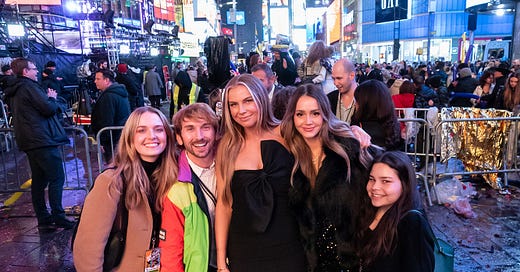


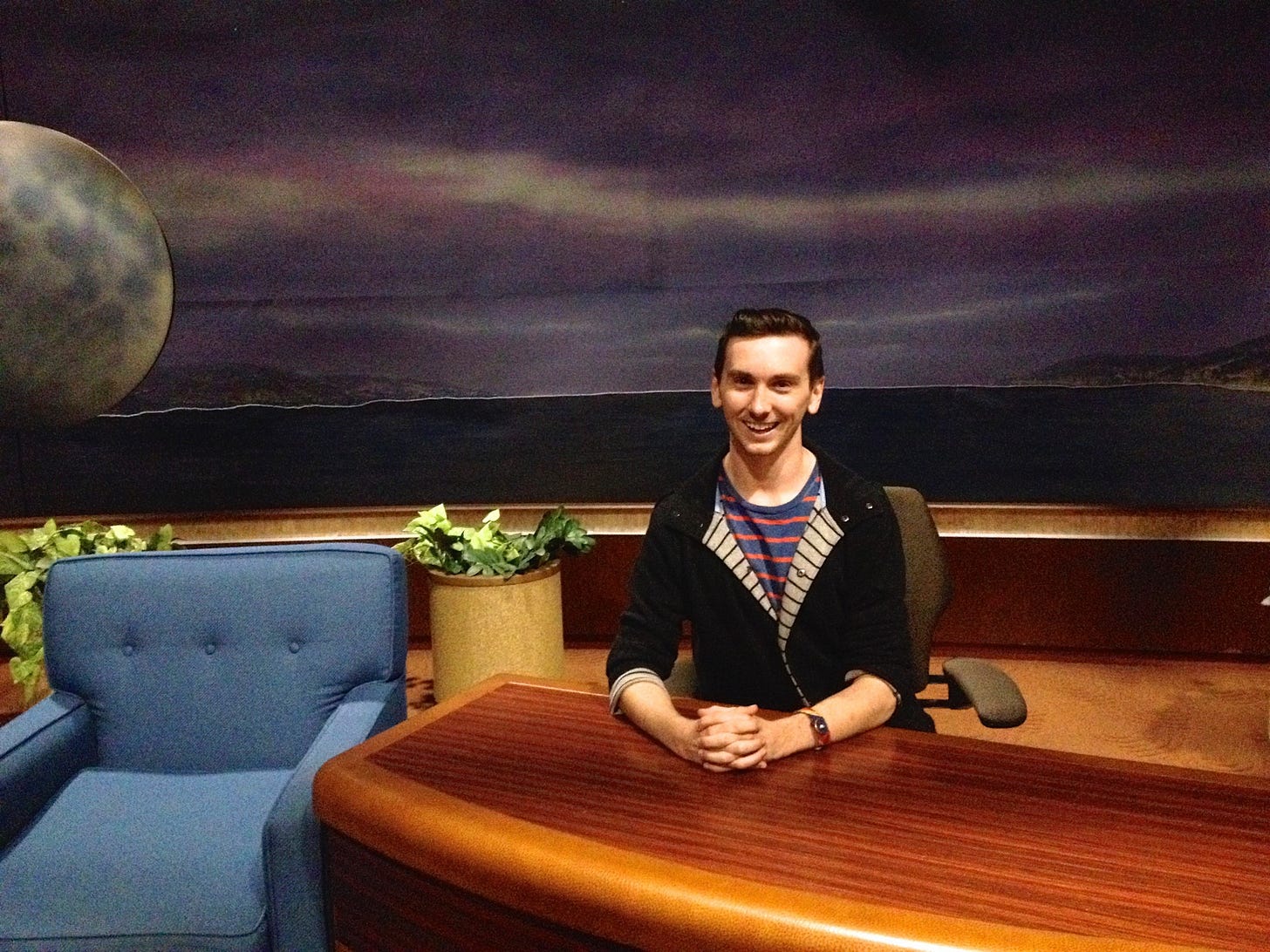
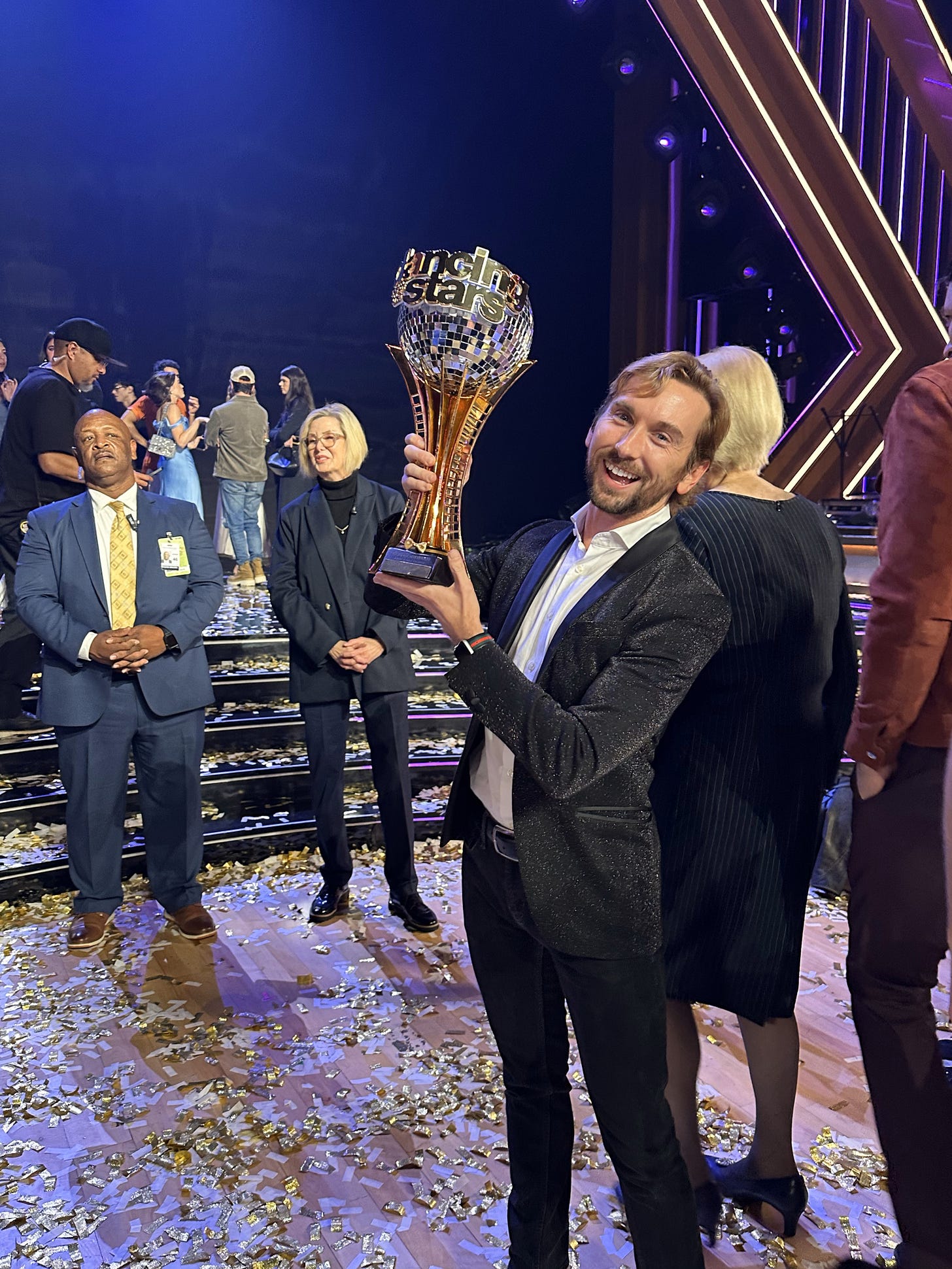
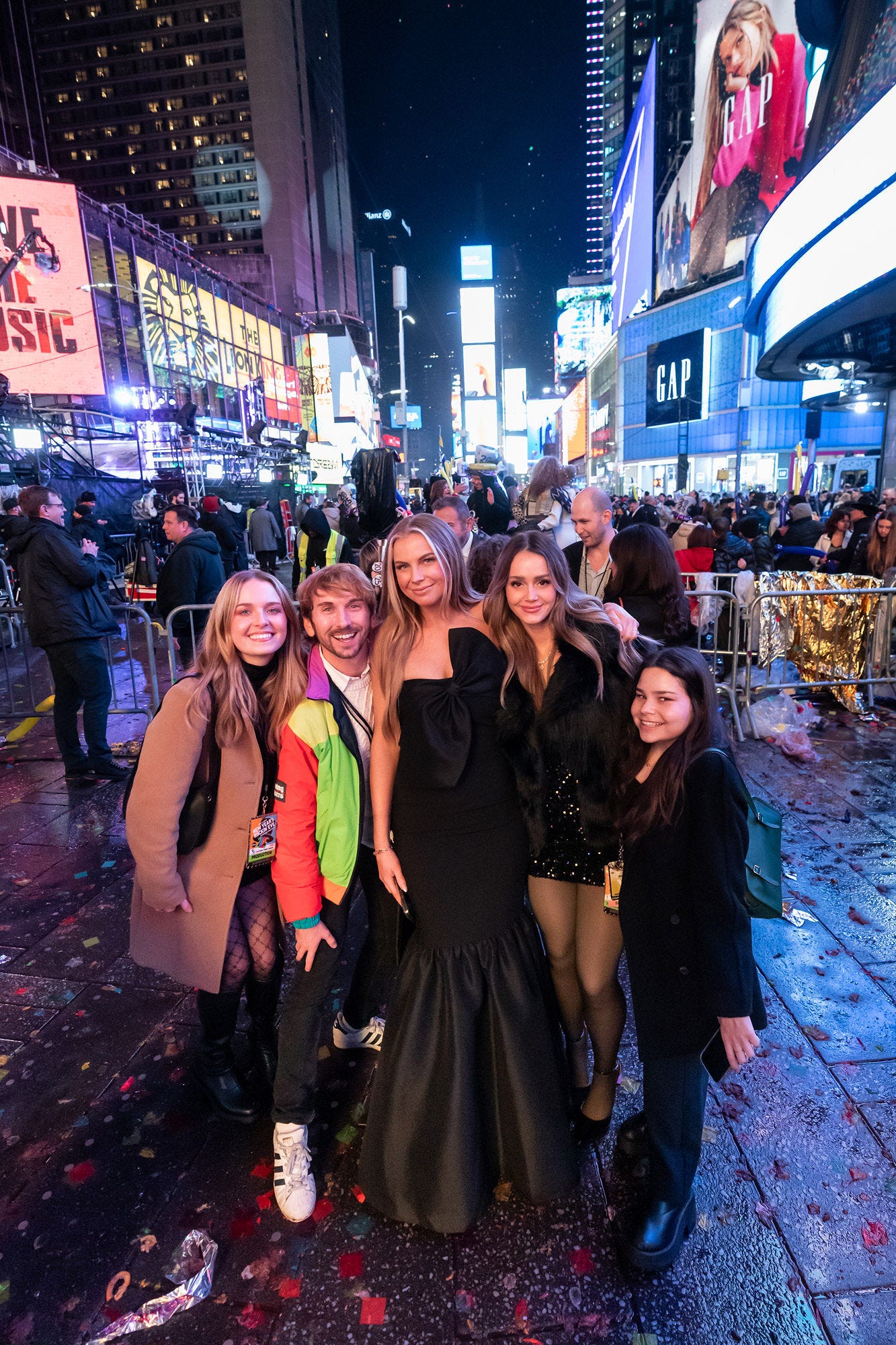
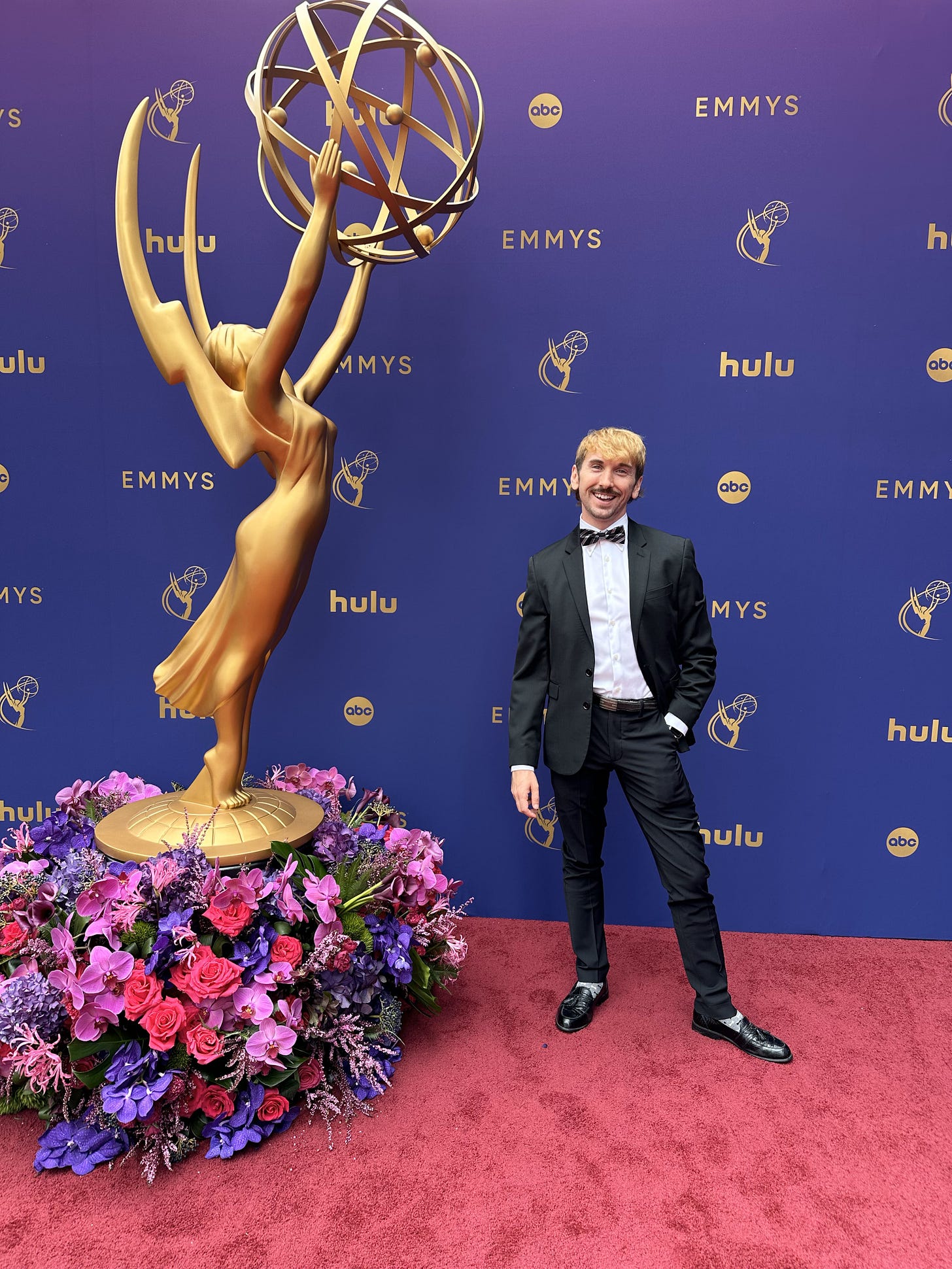


Share this post